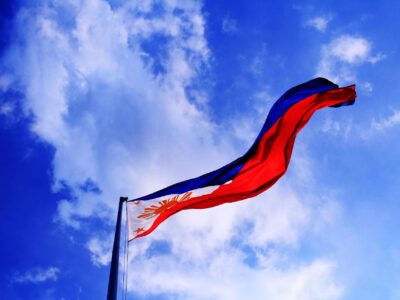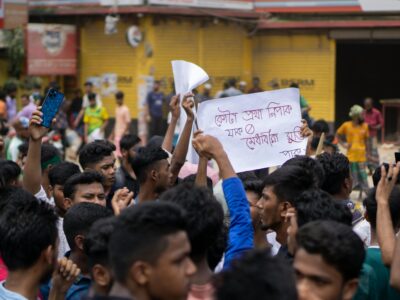14-10-2024
Jessica Schwarz
Global Human Rights Defence.
In a significant move, lawyer Rodney Dixon KC representing Tunisian political prisoners and their families has submitted an inquiry to the Office of the Prosecutor at the International Criminal Court (ICC) at the end of September 2024, raising urgent concerns regarding the treatment of African migrants in Tunisia and the escalating human rights violations against political opponents in the lead-up to the October 6 elections. This inquiry follows a previous submission addressing the government’s crackdown on political dissent, highlighting a troubling pattern of repression that continues to deepen.
Worsening Situation of African Migrants
The inquiry underscores that the situation for black African migrants in Tunisia has deteriorated significantly in recent years. Many migrants, fleeing violence and instability in their home countries, are facing increasing hostility, discrimination, and violence in Tunisia. The legal representative argues that these actions amount to crimes against humanity, which fall under the ICC’s jurisdiction. The submission emphasizes the systemic nature of these abuses, calling for the ICC to investigate and hold accountable those responsible for orchestrating or condoning such violations.
Voices from the Ground
Among those voicing concerns is Jaza Cherif, the son of Chaima Issa, a notable figure in Tunisia’s political landscape. Issa was the first woman political prisoner of the revolution, and she now finds herself under house arrest after being sentenced to one year in prison by a military tribunal. Her family’s plight illustrates the current climate of terror in Tunisia, where dissent is met with severe repercussions. The son emphasizes that the government is actively working to eliminate independent media, political parties, and civil society, creating an environment of fear and repression.
Dr. Yusra Gannouchi, daughter Rached Gannouchi, the democratically elected speaker of parliament when it was dissolved, also highlights the grave human rights situation in Tunisia. Rached Gannouchi is recognized as the oldest political prisoner in the Arab world and points out that both the violations against political opponents and the mistreatment of migrants share a common root: a dictatorship that employs various tactics to maintain control. He argues that the regime is using migration as a means to blackmail Europe, leveraging the plight of migrants to gain legitimacy on the international stage.
David Yambio, a refugee human rights defender, provides further context to these issues, revealing how funding from international sources is being misused. He alleges that financial resources intended for humanitarian support are being redirected to the Tunisian police, enabling them to conduct violent attacks against refugees. This misuse of funds not only exacerbates the suffering of migrants but also undermines efforts to promote human rights in the region.
Recent Election Results
In a significant development following the inquiry, President Kais Saied won a landslide victory in Tunisia’s October 6 election, solidifying his grip on power after a first term marked by the imprisonment of opponents and the overhaul of the country’s institutions to grant him greater authority. Saied’s administration has been criticized for its authoritarian approach, which many believe has further marginalized dissent and curtailed democratic freedoms.
A Call for Accountability
By bringing these issues to the ICC’s attention, this case aims to foster a global dialogue on human rights in Tunisia and pressure authorities to uphold their obligations under international law. The inquiry serves as a crucial reminder of the importance of safeguarding the rights of all individuals, particularly those who are marginalized and vulnerable.
As the international community closely watches the implications of the recent election results, the findings of the ICC may play a pivotal role in shaping the future of human rights and governance in Tunisia. The inquiry represents not only a legal step toward accountability but also a moral imperative to stand against injustice and advocate for the rights of all individuals, regardless of their nationality or political beliefs.
In conclusion, this submission to the ICC underscores the urgent need for international oversight and action regarding the treatment of African migrants and the repression of political dissent in Tunisia. As the country navigates these complex challenges, the global community must remain vigilant in its support for human rights and democratic principles.







Comments